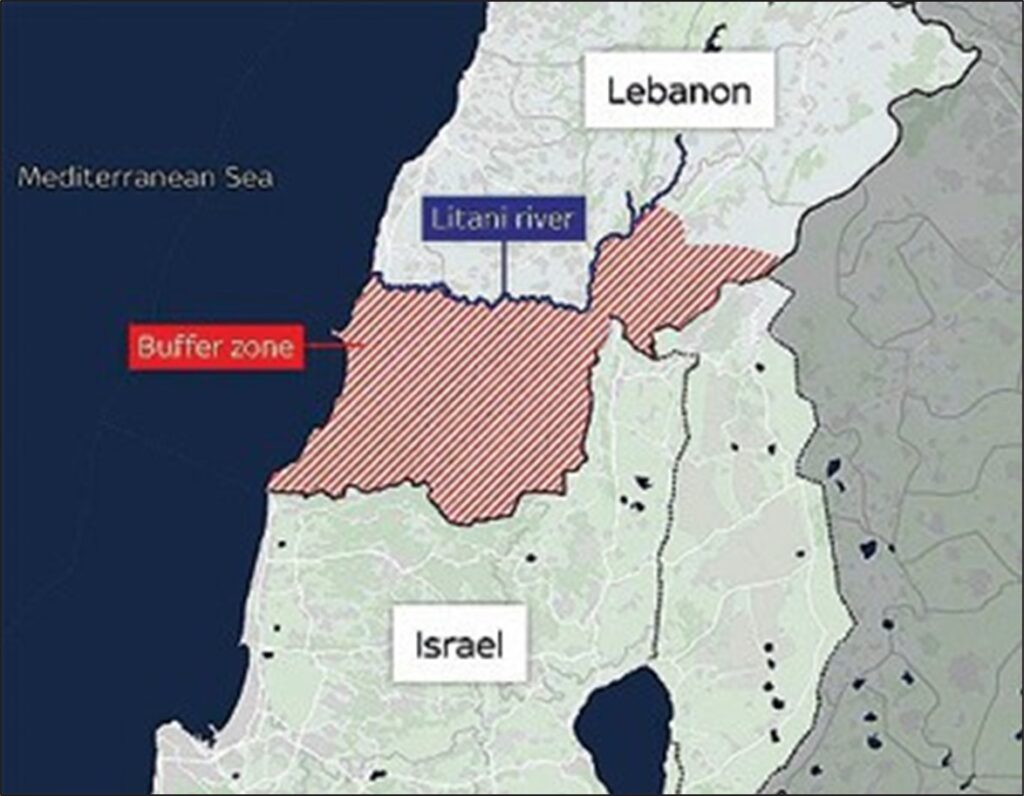November 29, 2024

Supreme Leader Ali Khamenehi has reportedly called on the Lebanese Hezbollah to accept a ceasefire agreement with Israel that would require Hezbollah to withdraw north of the Litani River, making many of Hezbollah’s weapons irrelevant. Such a withdrawal would mean Hezbollah would have to retreat about 25 kilometers (15 miles) north of the Israeli border, making its many rockets and mortars that have a range of less than 25 kilometers useless.
Two individuals affiliated with the Pasdaran told The New York Times November 16 that senior Supreme Leader adviser Ali Larijani conveyed this message to Hezbollah during his recent visit to Beirut. Ten days later, Hezbollah approved such an agreement. The message emphasized that Khamenehi supports “ending the war with Israel” and that Iran will help Hezbollah recover from the war. It would be in Iran’s interest to end the fighting between Israel and Hezbollah to prevent Israel from further weakening Hezbollah.
Iran could also calculate that it could help rearm and reconstitute Hezbollah after a ceasefire takes effect. Iran has historically transferred weapons to Hezbollah in Lebanon via Syria, which means that preventing this rearmament and reconstitution process would require some form of interdiction effort against Iran. This report, assuming it is accurate, highlights the extent to which Iran lacks the capability (or willingness) to defend the Axis of Resistance against Israel. Iran failed to prevent Israel from severely degrading Hamas units across the Gaza Strip, and it now similarly appears unable or unwilling to help Hezbollah fight Israel.
The Iranians talking to The New York Times said the Supreme Leader had told Hezbollah to accept the terms of a ceasefire deal demanding it move its forces north of the Litani. This would be in compliance with UN Security Council Resolution 1701, approved in 2006, which ended a past round of fighting between Israel and Hezbollah. Hezbollah, however, never withdrew north as required, a huge point of irritation for Israel, especially as Hezbollah has been using its troops south of the Litani River to shell Israeli towns for the last year.
Israeli troops invaded Lebanon in October, but have still not penetrated more than six kilometers north of the border. They are concentrating on obliterating everything Hezbollah built just north of the border to use in attacking Israeli villages along the border. The border villages were all evacuated more than a year ago, and the demands that the residents be able to return and be safe in those towns has become a huge issue in Israeli politics.
Most of the Israeli ground forces’ activity in Lebanon has been concentrated within line-ofsight of the border, bulldozing military sites, blowing up storage sites and the like. The Israeli air force, meanwhile, has been intensely bombing Hezbollah weapons storage sites in south Beirut and in the Beqa Valley of northern Lebanon. Nabil Berri, a veteran Shiite Lebanese politician and the speaker of parliament, was quoted November 17 in Al Jumhuria, a Lebanese newspaper, as saying a recently presented American proposal contained elements that Lebanon’s government considered unacceptable.
He told the newspaper it would be “impossible for us to accept” an agreement that included a stipulation that permitted Israel to attack Lebanese territory again in the future. But, in the end, Hezbollah accepted just such a provision in the ceasefire agreement with Israel.
























